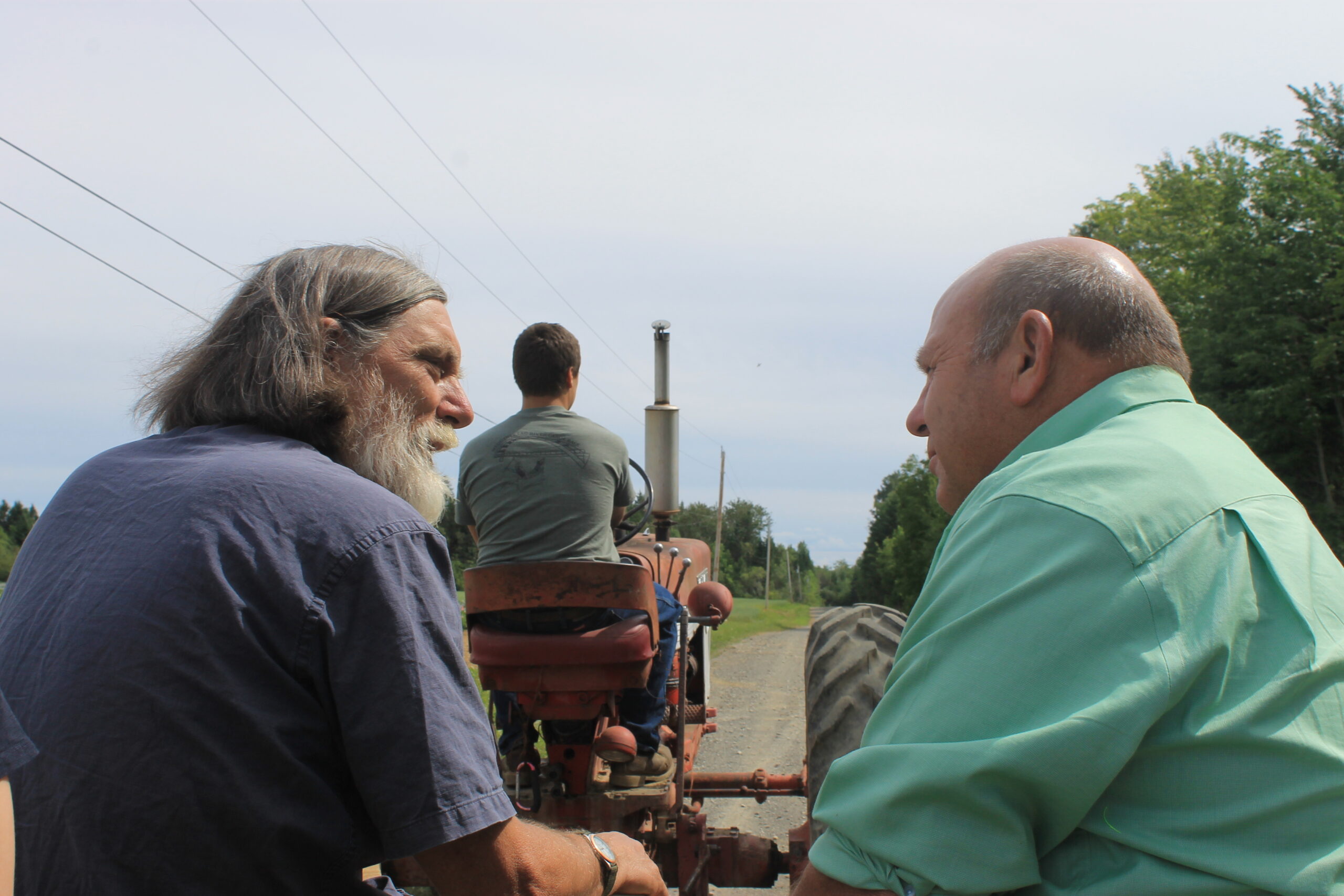
BRIDGEWATER, Maine — Before his tour of Aroostook County, Zippy Duvall, a Georgia beef and chicken farmer and president of the American Farm Bureau, said he had never been as far north in the Northeast.
On his 43rd state of a national tour, Duvall took a multi-day trip through Maine with members of the Maine Farm Bureau.
On Monday, one of the coolest days this summer, Duvall visited the McCain Foods plant in Easton, the Smith’s Farm broccoli packing warehouse in Westfield and the Wood Prairie organic seed farm in Bridgewater. The next day, he travelled Down East to visit wild blueberry farmers, including the state’s largest grower, Wyman’s.
“I didn’t really know potatoes were a big deal here,” Duvall said after a tour of Wood Prairie Farm in Bridgewater, where the Gerritsen family offered a hayride tour of their land and an in-depth explanation of their 10 acre organic seed potato operation.
Amid a range of challenges facing American farmers, including ongoing pressure to consolidate, Duvall said that he has been hearing similar concerns everywhere.
“Labor is the number one issue across the country,” Duvall said. “A lot of farmers are having to depend on the H2A program,” the temporary visa program for seasonal farm workers.
For decades, a range of Maine farms have relied on seasonal workers from other countries, including central Maine apple orchards, Aroostook County broccoli growers and Down East wild blueberry farmers. Many of the farm workers have returned to the same employers for years, and like other industries their workforce is aging.
Today’s highly-mechanized potato farms have not had to rely on the H2A program, though have still faced challenges finding seasonal workers. Smaller farms like Wood Prairie Farm are powered with a mix of family and local workers, and the Gerritsen’s are also in the process of transitioning the farm to the next generation.
“It’s very difficult to find local farm workers anymore. It really doesn’t have to do with pay,” Duvall said. “We do have a lot of undocumented workers that work in agriculture and our policy supports a change in status, to come forward and declare as an immigrant worker without being punished. We’re having people afraid to come out and take the jobs.”
Duvall said that the American Farm Bureau is aiming to work with federal lawmakers to solve the farm worker shortage through a mix of immigration reform and promotion of agricultural careers.
“To solve the labor issue, you’re going to have to have immigration reform,” Duvall said. “We’re hoping we’re going to find a solution that helps the population who’ve come here to work on farms. And we’re hoping we can encourage young people to work in agriculture, whether it be working for someone, for themselves or in agri-business.”







